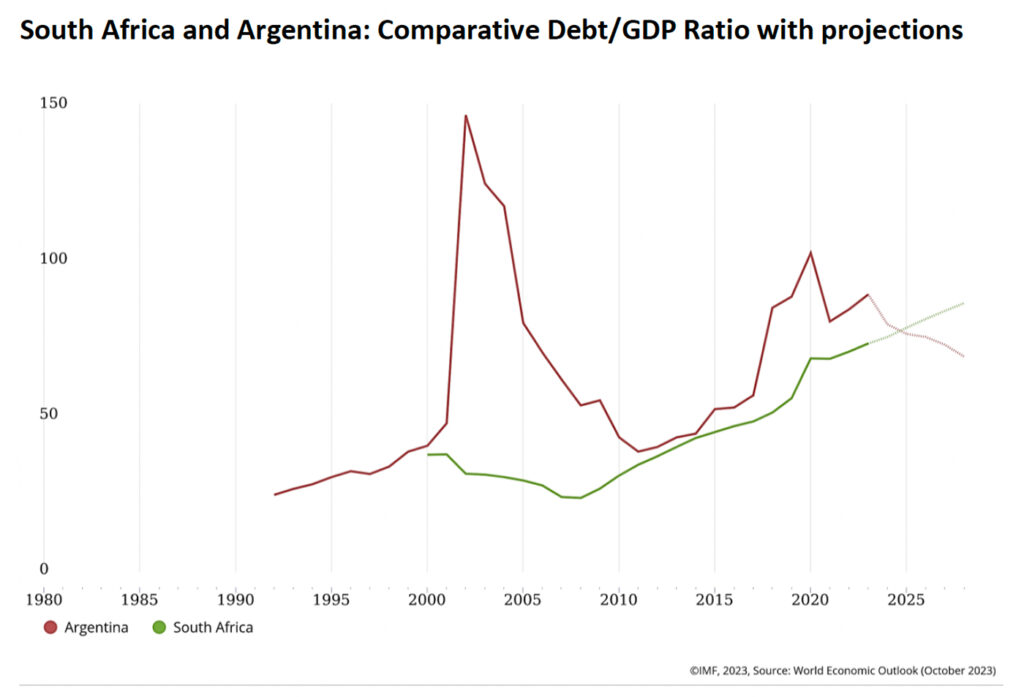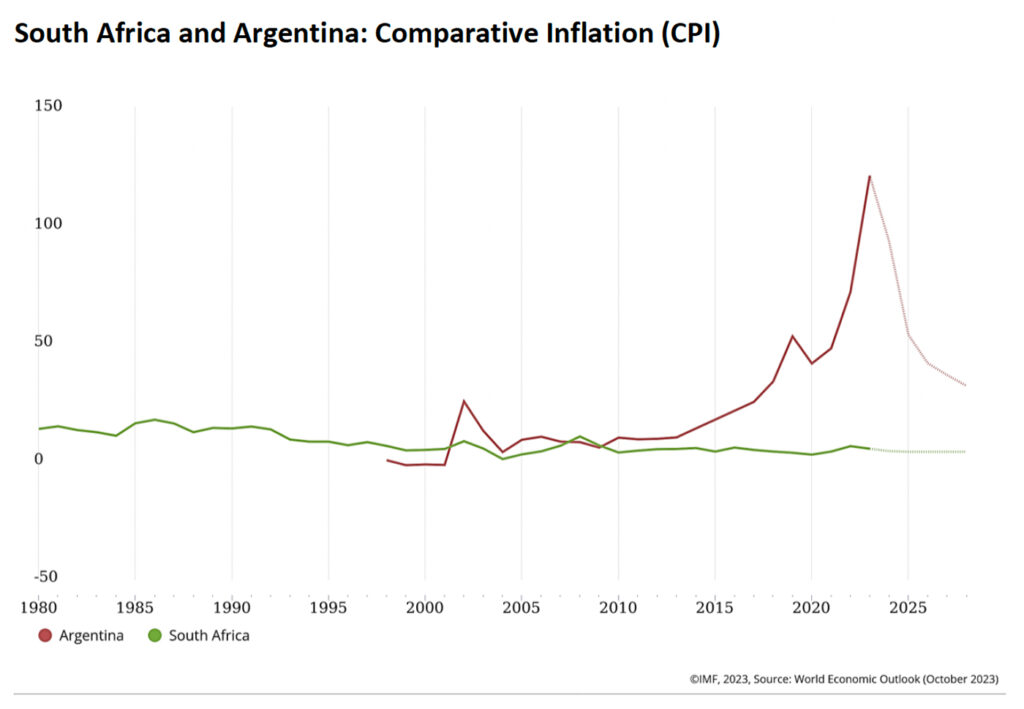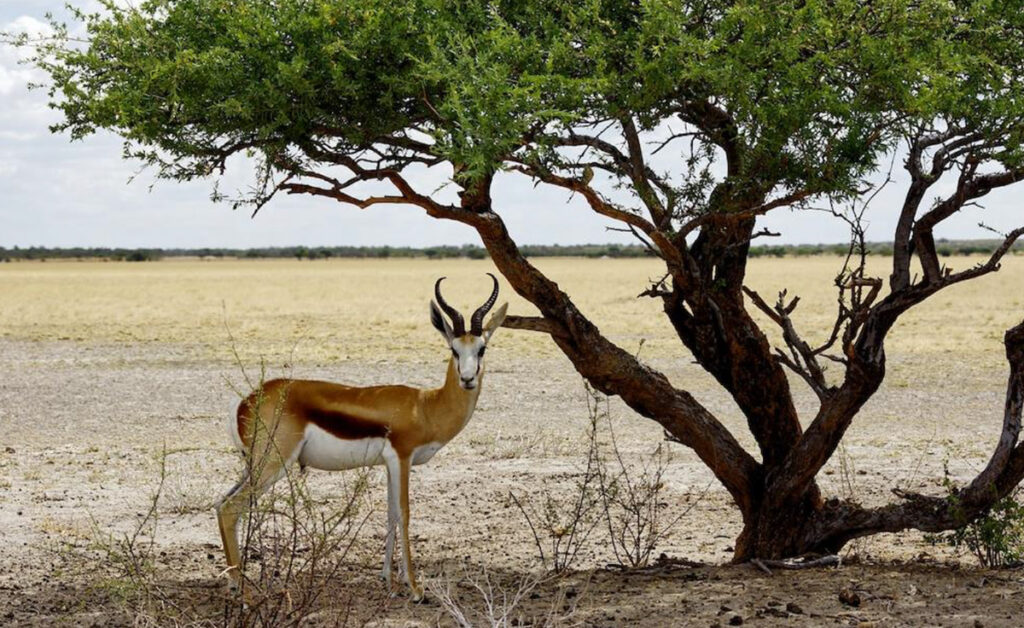The aftermath has brought South Africans euphoria and optimism, comparable only to SA’s 1995 Rugby World Cup win shortly following readmission after Apartheid.
Such a profound sense of optimism may lead onlookers – particularly South Africans – to view current economic circumstances with rose-tinted glasses. However, history tells us that such expectations may be misplaced. Experts argue that mood bumps like this typically don’t have a massive impact where it counts.
South Africa’s main economic challenges remain rooted in high unemployment, inequality, debt, low economic growth, and energy shortages relating to mismanagement of the state power utility, Eskom. Moreover, post the COVID-19 pandemic, containing inflation has become a paramount global economic priority.
A BACKGROUND ON SOUTH AFRICA’S HISTORY OF SPORT AND ECONOMIC DEVELOPMENT
As South Africans won’t hesitate to tell you, SA have previously lifted the Webb Ellis Cup in 1995, 2007, and 2019. To assess the significance of sporting accolades on economic development, it is valuable analyse how key sporting events have influenced South Africa’s economic story.
THE 1995 RUGBY WORLD CUP
South Africa’s victory as 1995 Rugby World Cup hosts coincided with a period of trade liberalization, reintegration into the global economy, and increased foreign investment. While the direct economic effects were limited, the victory helped foster a sense of national identity and pride, significantly improving the nation’s morale and international image.
THE 2010 FIFA WORLD CUP
The 2010 FIFA World Cup saw national and municipal governments invest roughly R40 billion in infrastructure, including 10 stadiums, expansions of water and electricity networks, enhancements to transport systems like the Gautrain and Rea Vaya bus system, and significant improvements in road and air infrastructure. These investments led to increased tourism revenues, and temporary job creation in various sectors. Other benefits were less tangible: national pride, improved the country’s image on the global stage, and a valuable legacy of stadiums for future events.
However, criticism on inflated costs, budget overruns, debt, and debates about the cost of maintaining infrastructure persist to this day. Some also criticize the allocation of funds, suggesting they could have been better used addressing pressing social issues like housing and poverty.
THE 2019 RUGBY WORLD CUP
Despite the celebrations following the Springboks’ 2019 Rugby World Cup victory in Japan, any gains in consumer spending and tourism were nullified by the economic repercussions of the COVID-19 pandemic. These repercussions continue to influence economic conditions, as South Africa grapples with the complexities of its recovery and persistent inflation.
THE POST-COVID PARALLEL WITH ARGENTINA
Argentina’s recent celebration of its third FIFA World Cup victory in December 2022 is contrasted by the nation’s worst economic crisis in two decades.
With a similar population and similarly high Debt/GDP ratio, Argentina’s World Cup victory provides a fascinating comparison on whether sporting triumph can meaningfully change the trajectory of economic challenges in a post-COVID environment.

Unfortunately, economic realities have overshadowed the significance of Argentina’s sporting success: inflation has only worsened this year. Despite GDP growth of 0.7% in the first quarter of 2023, Argentina’s economic growth has since declined by -2.8% in the second quarter.
Since Argentina’s world cup victory, their economy has been plagued with inflation of 124% year-on-year as at October 2023. Coupled with severe debt concerns, the Argentine Peso remains in freefall.

Comparison with Argentina indicates that, despite short-term optimism generated by sporting triumph, these victories may not significantly alter the trajectory of economic challenges in a post-COVID environment.
COHESION AS AN ECONOMIC ASSET
When World Cup fever eventually subsides, millions of South Africans will remain in poverty unemployed. These issues cannot be wished away.
South Africa’s economic growth outlook remains precarious: as per the mid-term budget speech delivered on 1 November, SA’s economy is expected to grow by only 1.8% in 2023, down from the previous estimate of 2.2%. Further, Finance Minister Enoch Godongwana warned that the fiscal risks remain high, especially from state-owned enterprises such as Eskom, SAA and Denel, which require ongoing financial support from government.
In spite of these challenges, there are some short-term positives worth mentioning:
- A surge in national pride and celebration may result in increased short-term consumer spending. Media attention also attracts tourism, to the advantage of the hospitality, travel, and retail sectors.
- As in the past, positive attention can foreseeably boost the nation’s profile, potentially attracting foreign investment and business opportunities.
- Significantly, the victory provides a much-needed narrative shift in SA and globally. In recent years, a pervasive sense of pessimism and “failed state” rhetoric has arguably discounted SA’s potential.
As Izak Odendaal, Chief Investment Strategist Old Mutual aptly commented, “the RWC victory proves that South African resilience is not just a synonym for ‘stoic suffering’ but can also translate into excellence”.
South Africa’s victory has undeniably demonstrated the power of sport to uplift the spirit of a nation. SA’s economic story will continue to face challenges, however, South Africans can take solace in the fact that we will do so more united than ever before.



